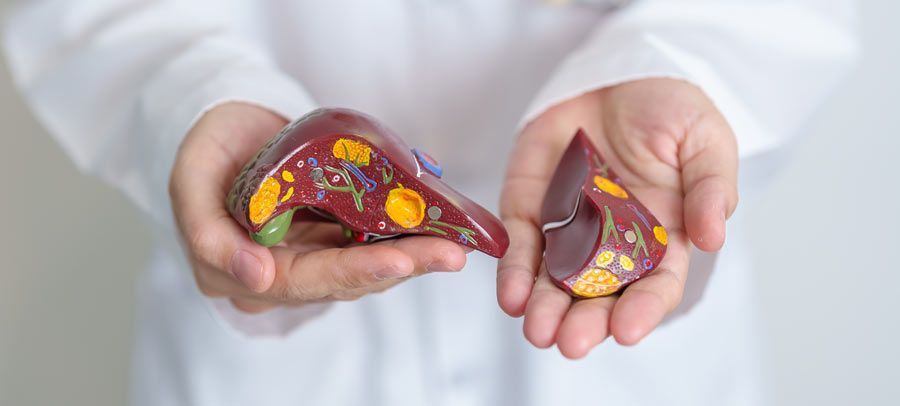
Understanding Hormonal Imbalances: Signs and Solutions
Hormones play a critical role in the human body, acting as chemical messengers that regulate various physiological processes, including metabolism, growth, mood, and reproductive functions. When these hormones are in balance, we feel energized and healthy. Hormones work as a symphony and when one is off it can affect the others. Imbalances can lead to various health issues that affect our quality of life. Understanding the signs of hormonal imbalance and exploring potential solutions can pave the way to better health.
-Dr. Dana Cohen

What Are Hormonal Imbalances?
Hormonal imbalance occurs when there is too much or too little of a particular hormone in the bloodstream. This can happen due to various factors, including stress, lifestyle choices, underlying medical conditions, and changes associated with aging. Common hormones that can become imbalanced include:
- Estrogen: Important for female reproductive health, mood, and cognitive function.
- Progesterone: Helps regulate the menstrual cycle and supports pregnancy.
- Testosterone: Often considered a male hormone, it is also crucial for female health, influencing libido and muscle strength.
- Insulin: Regulates blood sugar levels and carbohydrates.
- Cortisol: The stress hormone that affects metabolism and immune response.
- Thyroid Hormones: Control metabolism, energy levels, and body temperature.
Signs of Hormonal Imbalance
The symptoms of hormonal imbalance can vary significantly based on which hormones are affected and the individual's gender and age. Here are some common signs to watch for:
1. Mood Swings and Irritability
One of the first symptoms reported by individuals experiencing hormonal imbalances is mood swings. Changes in estrogen and progesterone can lead to heightened emotional responses, anxiety, or irritability.
2. Fatigue and Sleep Disturbances
Hormonal imbalances can also lead to chronic fatigue and difficulty sleeping. Cortisol, for example, plays a role in our sleep-wake cycle, while thyroid hormones help regulate overall energy levels. If these hormones are out of balance, you may find yourself feeling exhausted even after a full night's sleep.
3. Weight Changes
Unexpected weight gain or loss can be a significant indicator of hormonal imbalance. Insulin resistance, often linked to poor diet and lack of exercise, can lead to weight gain, particularly around the abdomen. Similarly, fluctuations in thyroid hormones can cause undesired weight changes as well.
4. Irregular Menstrual Cycles
For women, irregular or heavy menstrual periods may signal hormonal imbalance. Conditions such as polycystic ovary syndrome (PCOS) are characterized by elevated androgens (male hormones) that can disrupt usual menstrual cycles.
5. Difficulty Concentrating
Hormonal fluctuations can impair cognitive function, leading to difficulties with focus, memory, or decision-making. This brain fog is often exacerbated by inadequate sleep and increased stress.
6. Changes in Libido
Hormones significantly impact sexual desire in both men and women. A decline in testosterone can lead to reduced libido, while fluctuations in estrogen can affect women's sexual arousal and comfort during sex.
7. Skin Issues
Hormonal imbalances can also manifest dermatologically. Conditions like acne, dryness, or excessive skin oiliness can arise due to hormone changes such as estrogen and testosterone.
8. Hot Flashes and Night Sweats
These symptoms are often associated with menopause when estrogen levels drop. However, hot flashes and night sweats can also occur due to other hormonal imbalances.
Solutions to Hormonal Imbalances
Once you identify the signs and potential causes of hormonal imbalance, it's important to explore solutions. Here are effective strategies for achieving hormonal harmony:
1. Lifestyle Modifications
a. Balanced Diet - Focus on a diet rich in whole foods that includes plenty of vegetables, fruits, healthy fats (such as avocados and nuts), and lean proteins. Reducing sugar intake and processed foods can help stabilize insulin levels and improve overall hormonal health.
b. Regular Exercise - Engaging in physical activity can improve insulin sensitivity, stress management, and overall well-being. Aim for a mix of cardio and strength training for optimal benefits.
2. Stress Management Techniques
Implementing stress-reducing techniques such as mindfulness meditation, deep breathing exercises, yoga, and spending time outdoors can help lower cortisol levels and create a sense of calm.
3. Sleep Hygiene
Establish a consistent sleep routine that ensures quality rest. Prioritize sleep by creating a quiet, dark environment, limiting screen time before bed, and incorporating calming pre-sleep rituals.
4. Support from Health Professionals
Consultation with healthcare professionals can help guide you in managing hormonal imbalances. Endocrinologists or holistic practitioners can provide insights into specific hormone testing, dietary recommendations, and treatment options.
5. Natural Supplements
Certain supplements may help support hormonal balance. These might include omega-3 fatty acids, vitamin D, magnesium, and herbal remedies such as vitex (chaste tree) or Ashwagandha. Always consult a healthcare provider before starting any supplementation.
6. Bioidentical Hormone Replacement Therapy
For severe hormonal imbalances, particularly during menopause, Bioidentical Hormone Replacement Therapy should be considered. This therapy aims to replenish hormones that are declining in the body and can alleviate symptoms like hot flashes and irritability.
Conclusion
Understanding hormonal imbalances is essential for maintaining overall health and well-being. By recognizing the signs, identifying potential causes, and exploring practical solutions, you can regain the balance your body needs. Whether through lifestyle adjustments, dietary changes, or professional assistance, addressing hormonal health can dramatically improve your quality of life, energy levels, mood, and vitality. Remember, taking proactive steps toward understanding and managing hormonal health is an empowering journey towards a healthier you.



Dr. Dana Cohen, MD
317 West 54th Street, Suite D. New York, NY 10019
(212) 787-1877
Scientific Advisory Board Member
Advisor to the Board of Directors
Medical Board of Advisors
Scientific Advisory Board Member
Scientific Advisory Board Member
Advisor to the Board of Directors
Scientific Advisory Board Member
317 West 54th Street, Suite D New York, NY 10019 (212) 787-1877
Speaking | Terms and Conditions | Privacy Policy | Join Newsletter | Quenchy Says - Accessibility Statement
Art licensed by iStock and Shutterstock | Copyright ©2021 HEALUP Corp All Rights Reserved














